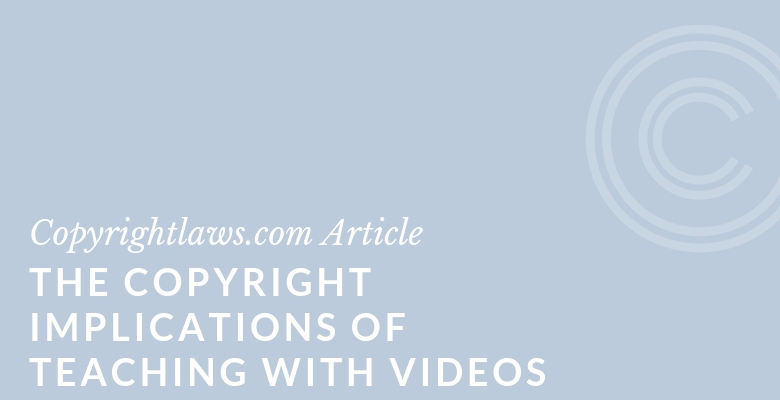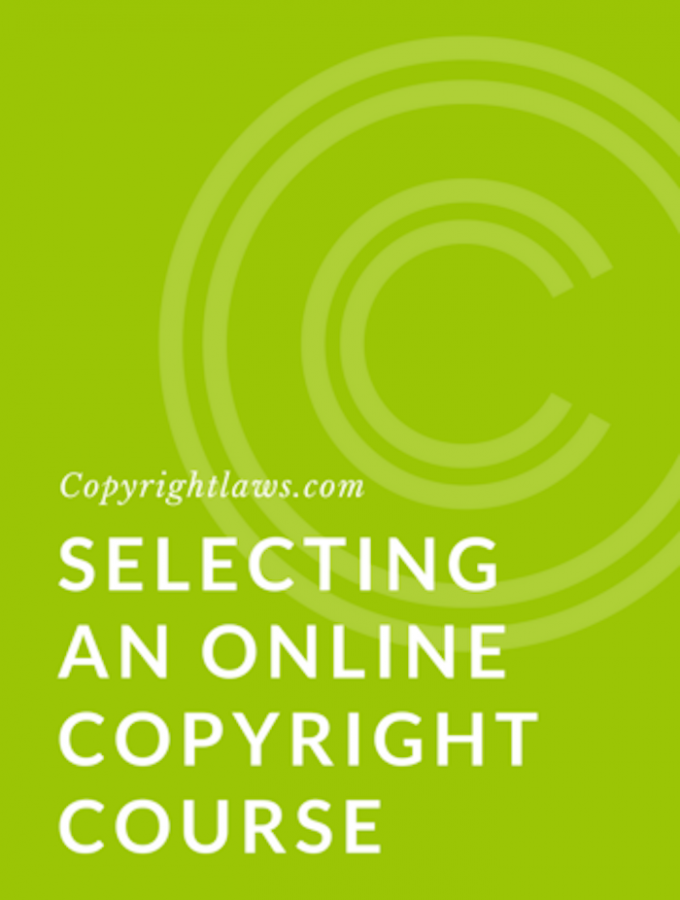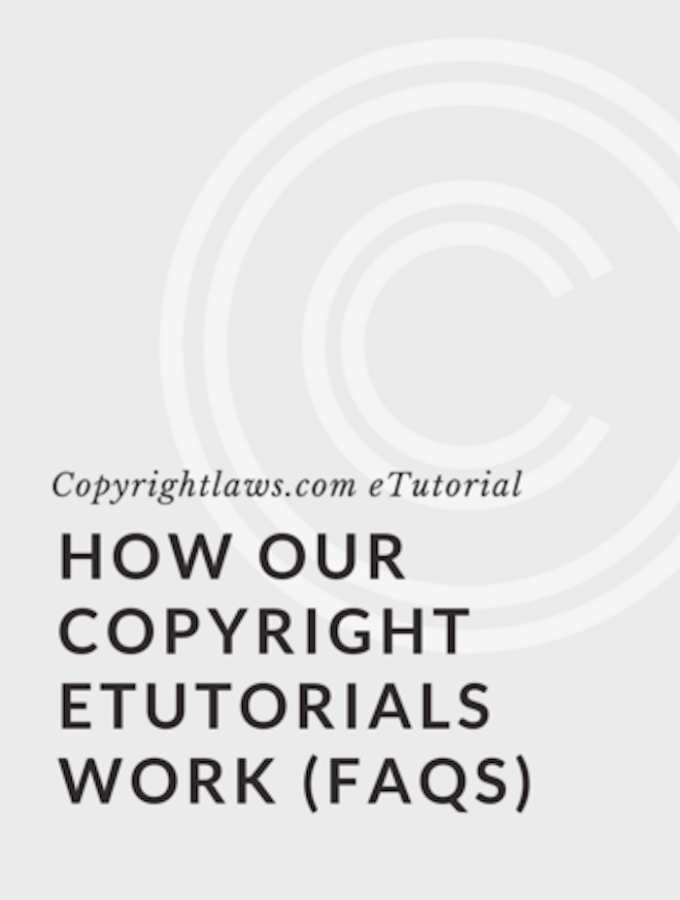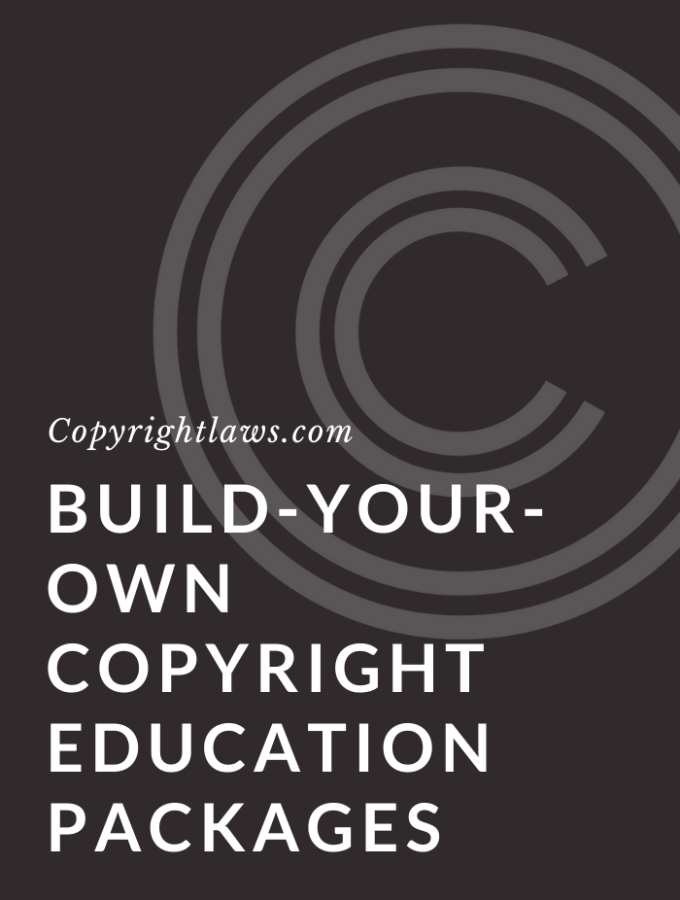
Copyrightlaws.com is excited to share Sara Benson’s article on the copyright implications of teaching with videos, both face-to-face and online. Educators and librarians in the U.S. who deal with copyright issues related to teaching with videos will benefit from the information she shares.
Ms. Benson is a Copyright Librarian and Assistant Professor at the University of Illinois Library. In fall 2019 the Association of College & Research Libraries (ACRL) is publishing the book she has edited, a compliation titled Copyright Conversations: Rights Literacy in a Digital World.

Copyright Implications of Teaching with Videos
There are many pedagogical reasons faculty members choose to teach using video clips or even by showing full-length movies to their students during class. Often, it’s one thing to tell the students about a particular event and a very different experience for the students to watch either a documentary about or a fictional rendition of it.
Regardless of the reason, the connection between video and teaching is here to stay. And so, as librarians or faculty, we need to think through the copyright implications of teaching with videos.
Face-to-Face Teaching and Section 110(1) of the U.S. Copyright Act
When teaching in a classroom face-to-face with students, the law provides educators with a straightforward exception to copyright in Section 110(1) of the U.S. Copyright Act. As long as the video came from a lawful source, you can show an entire movie to your enrolled students without asking for permission or paying for public performance rights.
So, for instance, if an instructor wishes to show the entire movie “A League of One’s Own” in a feminist studies class and the professor owns their own copy of the film, they can show the movie without obtaining public performance rights or otherwise paying a licensing fee. Or, if the library owns a copy of the DVD, the professor could borrow the library’s copy of the movie and show it during class.
Section 110(1) is a limited exception to copyright in that it only permits the use of copyrighted works in the face-to-face classroom. However, it is also a fairly broad exception in that it permits both teachers and students to display or perform any work within that environment. Note that it doesn’t permit the faculty or students to make reproductions or copies of the works.
If the professor wishes, however, to show only clips of the movie during face-to-face classroom teaching, they would not be within the Section 110(1) exception because in order to make the clips the professor would need to break the technological locks (if any) on the DVD, and make a copy of the DVD’s contents. This brings us to our next topic for discussion, the Digital Millennium Copyright Act (DMCA).
The Digital Millennium Copyright Act
In the digital age professors often teach online. Things get quite complicated relating to copyright in the online course environment. One complication arises from the DMCA.
The DMCA protects intellectual property owners who place digital lock protection devices onto DVDs and other discs to stop consumers from making copies of the works. Generally, the DMCA and the Copyright Act would be violated by making a copy of a DVD of a movie.
In the face-to-face teaching context, no copy is necessary, because the professor can easily pop in the DVD and play the entire movie for the class (or fast forward to specific parts of the movie for quick viewing). However, to show a movie online, an educator would need to:
- Break the technological locks on the DVD, to
- Make a digital copy of the work to stream to the class.
Luckily, the Copyright Office has recognized a few exemptions to the DMCA for breaking technical video locks for teaching purposes.
One exception is to create subtitles for hearing impaired students when there are no subtitled versions of videos available through a vendor at a fair price or in a timely manner and
the accessible versions are provided to students or educators and stored by the educational institution in a manner intended to reasonably prevent unauthorized further dissemination of a work.
Another exception is to “make use of short portions of the motion picture ... for educational purposes” when the person breaking the technology locks reasonably believes that non-circumventing methods of capturing the information would be insufficient “to produce the required level of high-quality content.” This exception, while very helpful for online courses, does limit professors to making use of only “short portions” of the entire movie or film.
Application of the DMCA to Online Teaching
So, let’s take our first example. The professor teaching feminist studies wishes to show students clips from the movie “A League of One’s Own” in an online class session. In order to make the clips, the professor must break the technological locks on the DVD, download the contents of the DVD, and then create clips to show and discuss during class. Note that if the professor was comfortable using screen capture technology, which might be blurry, then the DMCA would not be an issue as no technological locks would be broken.
Let’s assume, though, that the professor wants the clips to be high quality and does break the technological locks. Can they show the clips during class? The answer depends on the length of the clips.
Are the clips “short”? What is the definition of “short” for purposes of the DMCA? There’s no easy answer to this question except to say that the U.S. Copyright Office, in enacting the “short portion” requirement in the exemption, sought to mimic the fair use doctrine’s requirements of small amounts of works used without permission so long as they don’t usurp the market value for the original work. (See Recommendation of the Acting Register of Copyrights, Section 1201 Rulemaking p. 48.)
The use of “short” portions, then, would presumably meet both the DMCA exemption requirement allowing for the breaking of the technological locks, as well as the fair use of the work without license or permission, as the use is not usurping the market value of the work.
The DMCA and TEACH Act
Note that in the online teaching environment, campuses that comply with the TEACH Act or Section 110(2) of the Copyright Act could avoid the assertion of a fair use argument. I have found that my campus is generally not TEACH Act compliant, but for those that are able to meet the numerous TEACH Act requirements,
such as the obligation to limit transmissions to officially enrolled students and to institute copyright policies and apply TPMs [technological protection measures] that reasonably prevent unauthorized further dissemination of a work to others[,]
the TEACH Act could operate to allow for the streaming of the digital video clips. See Section 1201 Rulemaking.
Fair Use
While the above exception does permit both the technological locks to be broken and a copy to be made in some circumstances, the DMCA doesn’t operate in a legal vacuum. Just as fair use can operate in tandem with Section 108 (exceptions for libraries), so too can it operate in conjunction with the DMCA. See, for example, Chamberlain Group, Inc. v. Skylink Technologies, Inc., (Fed. Cir. 2004).
Chamberlain’s proposed construction would allow copyright owners to prohibit exclusively fair uses even in the absence of any feared foul use ... [c]opyright law itself authorizes the public to make certain uses of copyrighted materials ... [w]hat the law authorizes, Chamberlain cannot revoke).
In a recent survey of academic libraries, I found that some librarians are willing to make a copy of an obscure film that’s unavailable by a streaming vendor for purchase in order to stream the entire film to an online class under a fair use analysis. In other words, where no streaming license is available and, therefore, there’s no market to harm from the streaming of the video, some librarians are comfortable asserting a fair use right to stream entire films to online classrooms. Fair use is decided on a case by case basis and is considered a risk management decision.
The issue of streaming videos online in an academic setting is complicated further by the DMCA provisions, but all is not lost. Librarians can still flex their fair use muscles, where reasonable, and can exercise DMCA exemptions authorized by the U.S. Copyright Office.
Checklists for Copyright Implications of Teaching with Videos
Face-to-Face Teaching Checklist
- Institution is a nonprofit educational institution
- Work is being used in a classroom or other similar teaching place devoted to instruction
- Work is being displayed or performed by teacher or students
- If a movie, the copy of the movie was obtained lawfully (the person showing the movie didn't have reason to believe it wasn’t made lawfully)
DMCA Exemption for Teaching with Videos Checklist
- Other methods of displaying work not feasible (such as screen capture)
- Circumventing technical locks to display “short” portions of the work
- For educational purpose
- By college and university faculty and students or K-12 educators and students (where the K-12 student is circumventing under direct supervision of an educator)
- For the purpose of criticism, comment, teaching, or scholarship
Looking for More Information?
You can find the current DMCA exemptions, a video about the DMCA, and frequently asked questions on the site of the U.S. Copyright Office.
For in-depth knowledge and practical strategies on managing copyright issues, see our comprehensive online course, Copyright Leadership Certificate.



